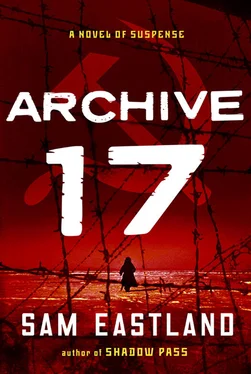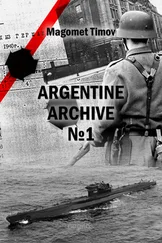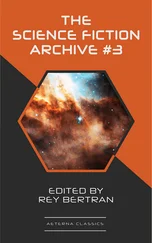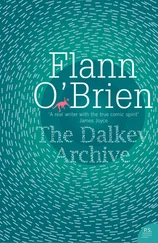Sam Eastland - Archive 17
Здесь есть возможность читать онлайн «Sam Eastland - Archive 17» весь текст электронной книги совершенно бесплатно (целиком полную версию без сокращений). В некоторых случаях можно слушать аудио, скачать через торрент в формате fb2 и присутствует краткое содержание. Жанр: Исторический детектив, на английском языке. Описание произведения, (предисловие) а так же отзывы посетителей доступны на портале библиотеки ЛибКат.
- Название:Archive 17
- Автор:
- Жанр:
- Год:неизвестен
- ISBN:нет данных
- Рейтинг книги:3 / 5. Голосов: 1
-
Избранное:Добавить в избранное
- Отзывы:
-
Ваша оценка:
- 60
- 1
- 2
- 3
- 4
- 5
Archive 17: краткое содержание, описание и аннотация
Предлагаем к чтению аннотацию, описание, краткое содержание или предисловие (зависит от того, что написал сам автор книги «Archive 17»). Если вы не нашли необходимую информацию о книге — напишите в комментариях, мы постараемся отыскать её.
Archive 17 — читать онлайн бесплатно полную книгу (весь текст) целиком
Ниже представлен текст книги, разбитый по страницам. Система сохранения места последней прочитанной страницы, позволяет с удобством читать онлайн бесплатно книгу «Archive 17», без необходимости каждый раз заново искать на чём Вы остановились. Поставьте закладку, и сможете в любой момент перейти на страницу, на которой закончили чтение.
Интервал:
Закладка:
“Would you like me to try to find him?” Poskrebyshev rose quickly to his feet.
“No! I must handle this myself. Have the car brought around. I will be leaving immediately. Fetch me my coat.”
Poskrebyshev crashed his heels together. “At once, Comrade Stalin!”
Kasinec was standing on the steps of a flimsy wooden structure grandly named the Central Convict Transport Administration Facility, puffing on a cigarette, when an American-made Packard limousine arrived at the station yard. Its cowlings had been splashed with perfect arches of grayish-black mud as it traveled the unpaved Moscow Highway. To the stationmaster, those muddy arches made the machine appear less like a car than a giant bird of prey, swooping out of the evening shadows and intent on tearing him apart.
Kasinec sighed out a lungful of smoke. He had seen this before-desperate people trying to bid one last farewell to friends or family members who had ended up on prison transports. There was nothing Kasinec could do for them. He kept no records of the names of prisoners. By the time convicts arrived at V-4, they had already been transformed into numbers and Kasinec’s only job was to see that the tally on his list matched the total of the prisoners boarding the train. When the train was full, the list would be handed to the chief guard accompanying the transport and Kasinec never saw them again.
Just then, the air was filled with the loud clatter of the telegraph machine in his office spitting out a message. The people in that car would have to wait. Kasinec flicked his cigarette out over the muddy station yard and walked inside to read the telegram.
Emerging a few moments later with the telegram still clutched in his fist, Kasinec saw a man in a fur-collared coat climbing from the Packard. It took him only a second to realize that this man was none other than Stalin himself.
Immediately, Kasinec’s hands began to shake.
Stalin crossed the station yard and climbed the three wooden steps to the balcony where Kasinec was waiting.
Kasinec saluted, fingertips quivering against his temples.
“What happened?” asked Stalin, a halo of breath condensing around his head. “Why didn’t he get aboard the train with all the other prisoners?”
“I don’t know,” stammered Kasinec.
“He’s vanished,” muttered Stalin, more to himself than to the stationmaster. “We’ll never find him now.”
“Actually, Comrade Stalin, we have found Inspector Pekkala.” Kasinec held up the telegram, which had just arrived from the switching junction at Shatura, twenty kilometers to the east.
“Found him? But you just told me he wasn’t aboard the train!”
“That’s not exactly true, Comrade Stalin. He’s just not among the prisoners.”
“Then where the hell is he?”
“According to the message from Shatura, he appears to be driving the train.”
Stalin shuddered, as if an electric current had just traveled through his body. He snatched the telegram from Kasinec’s hand, read it through, then crumpled the paper and flung it into the darkness. Turning away from the stationmaster, Stalin fixed his gaze upon a point in the distance where the rails appeared to converge.
“Pekkala, you son of a bitch!” he roared, his voice like thunder in the still night air.
When the train stopped at Shatura, a guard who had climbed down onto the tracks in order to relieve himself was astonished to see a prisoner walking towards him. Instantly, he swung the rifle off his back and aimed it at the convict.
But the prisoner neither raised his hands in a gesture of surrender nor tried to run away. Instead, he only held a finger to his lips, motioning for the guard to be silent. This so astonished the guard that he actually lowered his gun. “If you are who I think you are,” he whispered, “our orders were to put you on wagon number 6, back at the V-4 station.”
“Why does it matter which wagon I get on?”
The guard shook his head. “Those were the orders from stationmaster Kasinec.”
“Can you get me in there now?”
“Not without making them suspicious. The only time we move people is if a fight has broken out.”
“Will that not do for a reason?”
The guard studied Pekkala uneasily. “It would, but you don’t look as if you’ve been in a fight.”
Pekkala sighed as he realized what must happen now.
After a moment’s hesitation, the guard lifted his rifle, turning the butt end towards Pekkala. “Travel well, Inspector.”
“Thank you,” said Pekkala, and then everything went black.
He regained consciousness just as the door to wagon #6 was slammed shut. His lips were sticky with blood. Tracing his fingertips cautiously along the bridge of his nose, Pekkala was relieved to feel no jagged edge of broken bone.
In those first hours of the journey, the cramped space of the wagon remained silent, leaving each man alone with his thoughts.
As frost began to form across the inside of the wagon walls, Pekkala felt a slow fear creeping into the marrow of his bones. And he knew it would stay there, like the frost, which would not melt until these wagons rolled back empty to the west.
By dawn of the next day, the convoy had reached Sarapaul Station. Through the barbed-wire-laced opening that served as a window, Pekkala saw the platform jammed with soldiers on their way to man the border in the west. In their long, ill-fitting greatcoats, with pointed budyonny caps upon their heads, they boarded wagons no different from the one in which Pekkala was riding. Blankets, rolled and tied over their shoulders, gave to these soldiers the appearance of hunchbacks. Their long Mosin-Nagant rifles looked more like cripples’ canes than guns.
Morning sun sliced through rust holes in the metal roof, flooding the wagon with spears of golden light. As Pekkala raised his head to feel the warmth upon his face, he realized that this simple pleasure had already become a luxury.
Kirov sat at his desk, writing a report. The only sound in the room was the rustle of his pen nib across the page.
The sun had just risen above the rooftops of Moscow. Specks of dust, glittering as they drifted lazily about the room, reminded him of the smoke particles he had once seen under a microscope in school as his teacher explained the phenomenon of Brownian Motion.
Suddenly Kirov paused and raised his head, distracted by a noise from the street below-a jangling of metal against stone.
Kirov smiled. Setting aside his pen, he got up and opened the window. The frigid air snatched his breath away. Just beneath him, hanging from the gutter, icicles as long as his arm glowed like molten copper in the sunlight. Kirov leaned out, five stories above the street, and craned his neck to get a better view.
Then he saw it-a black Mercedes sedan making its way along the cobbled road. It was in poor repair, with rust-patched cowlings, a cracked headlight and a rear windshield fogged as if by cataracts. The jangling noise emanated from its muffler, which had lost a retaining bracket and clanked against the cobbles, sending out a spray of sparks at every dip in the road.
In the center of the street lay a huge pothole. Some months ago, a construction crew on a mission whose purpose remained a mystery had removed some of the cobblestones. The workers never returned, but the pothole remained. There were many such craters in the streets of Moscow. People grumbled about getting them fixed, but the possibility of this actually happening, the mountains of paperwork that would be required to set into motion the appropriate branches of government, stood as a greater obstacle than any of the potholes themselves.
Most people just learned to live with them, but not Colonel Piotr Kubanka of the Ministry of Armaments. He had appealed, to every office he could think of, for the roads to be repaired. Nothing had been done, and his increasingly angry letters were filed away in rooms which served no other purpose than to house such impotently raging documents. Finally, in desperation, Kubanka had decided to take matters into his own hands.
Читать дальшеИнтервал:
Закладка:
Похожие книги на «Archive 17»
Представляем Вашему вниманию похожие книги на «Archive 17» списком для выбора. Мы отобрали схожую по названию и смыслу литературу в надежде предоставить читателям больше вариантов отыскать новые, интересные, ещё непрочитанные произведения.
Обсуждение, отзывы о книге «Archive 17» и просто собственные мнения читателей. Оставьте ваши комментарии, напишите, что Вы думаете о произведении, его смысле или главных героях. Укажите что конкретно понравилось, а что нет, и почему Вы так считаете.











